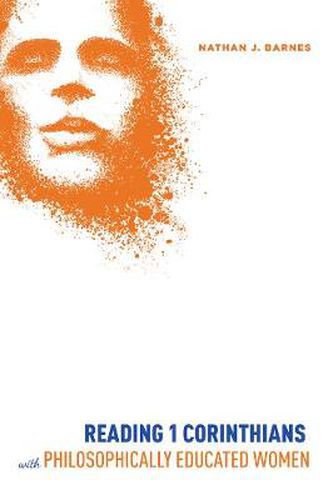Readings Newsletter
Become a Readings Member to make your shopping experience even easier.
Sign in or sign up for free!
You’re not far away from qualifying for FREE standard shipping within Australia
You’ve qualified for FREE standard shipping within Australia
The cart is loading…






This title is printed to order. This book may have been self-published. If so, we cannot guarantee the quality of the content. In the main most books will have gone through the editing process however some may not. We therefore suggest that you be aware of this before ordering this book. If in doubt check either the author or publisher’s details as we are unable to accept any returns unless they are faulty. Please contact us if you have any questions.
Women were involved in every popular philosophy in the first century, and the participation of women reaches back to the Greek origins of these schools. Philosophers often taught their daughters, wives, and other friends the basic tenets of their thinking. The Isthmian games and a tolerance for independent thinking made Corinth an attractive place for philosophers to engage in dialogue and debate, further facilitating the philosophical education of women. The activity of philosophically educated women directly informs our understanding of 1 Corinthians when Paul uses concepts that also appear in popular moral philosophy. This book explores how philosophically educated women would interact with three such concepts: marriage and family, patronage, and self-sufficiency.
$9.00 standard shipping within Australia
FREE standard shipping within Australia for orders over $100.00
Express & International shipping calculated at checkout
This title is printed to order. This book may have been self-published. If so, we cannot guarantee the quality of the content. In the main most books will have gone through the editing process however some may not. We therefore suggest that you be aware of this before ordering this book. If in doubt check either the author or publisher’s details as we are unable to accept any returns unless they are faulty. Please contact us if you have any questions.
Women were involved in every popular philosophy in the first century, and the participation of women reaches back to the Greek origins of these schools. Philosophers often taught their daughters, wives, and other friends the basic tenets of their thinking. The Isthmian games and a tolerance for independent thinking made Corinth an attractive place for philosophers to engage in dialogue and debate, further facilitating the philosophical education of women. The activity of philosophically educated women directly informs our understanding of 1 Corinthians when Paul uses concepts that also appear in popular moral philosophy. This book explores how philosophically educated women would interact with three such concepts: marriage and family, patronage, and self-sufficiency.